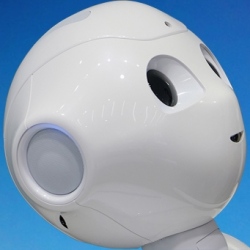
Noel Sharkey, Professor of AI and robots at Sheffield Robotics, University of Sheffield, is the co-founder and chair of the new FRR executive board. He explained that we are on the cusp of a robotics revolution with governments and corporations looking to robotics as a powerful new economic driver.
"Despite the disruptive impact of the increasing automation in our work places, our streets and our homes, only lip service is being paid to the long list of potential societal hazards," he warned.
The ever-increasing advances in the technology, robots are moving out of factories to automate many aspects of our daily lives. The International Federation for Robotics predicts the number of service robots will rise to 31 million by 2018: from healthcare to the care of children and the elderly, from cooking and preparing food to making and serving cocktails, from domestic cleaning to agriculture and farming, from policing and killing in armed conflict to monitoring climate change and protecting endangered species.
"Robots are only as responsible as the humans who build and use them. We must ensure that the future practice of robotics is for the benefit of mankind rather than for short term gains. The policies governing robotics must maintain ethical and societal standards of fairness and justice."
“We are rushing headlong into the robotics revolution without consideration for the many unforeseen problems lying around the corner,” Sharkey said. “It is time now to step back and think hard about the future of the technology before it sneaks up and bites us when we are least expecting it.”
One of the big issues surrounding automation is the creation of so-called technological unemployment. For instance Dr. Carl Frey and Dr. Michael Osborne’s recent paper, "The Future of Employment: How susceptible are jobs to computerisation?", found that possibly half of US jobs could be susceptible to robotics and automation in the span of a few years.
The FRR is also focused about maintaining progress and innovation in robotics research. "The public needs to be assured that new developments will be created responsibly and with due consideration of their human rights and freedom of choice," said Sharkey. "Early mistakes could set the field back by many years and stifle research."
